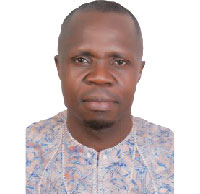The national conference has just entered its most critical stage. This is when all the reports, serious and unserious, minority and majority, submitted by the 20 committees, would be examined and debated in the Committee of the Whole. Signs of things to come emerged on Monday when delegates spent hours repeating themselves on the modalities for debate announced by the principal officers.
It seems that most of the delegates, including those who should know, are yet to come to terms with the fact that the conference is a mere talk-shop at the mercy of the president. It is not a parliament. It cannot be assertive on any constitutional issue. It has no teeth to bite. Or how do you explain a situation where Femi Falana, a Senior Advocate of Nigeria (SAN), asked the conference to probe money allegedly released for security. How would a conference with no power of budgetary allocation probe a government agency?
On Wednesday, the debate took off noisily. Thank God for the assertive leadership of the conference chairman, Idris Kutigi, and the diplomatic finesse of his deputy, Bolaji Akinyemi. My worry is that if so much noise was heard during consideration of a less important report, then what will happen when more serious issues like politics and governance, political restructuring, national security, and the dreaded devolution of power are tabled?
One issue that will attract convulsive argument soon would be why, in the name of decency, the Committee on National Security rejected the establishment of state police force. During its sitting, the committee was flooded with memoranda on this issue. Majority of the memoranda were in favour while others argued against it. However, the committee seemed to have had its mindset against the request.
The structure of the committee also created a problem. It was headed by a former Inspector General of Police, Muhammad Gambo Jimeta, with Albert Horsfall, a former director-general of the defunct Nigerian Security Organisation (NSO) who later headed both the State Security Service (SSS) and the National Intelligence Agency (NIA), as deputy. These two people hardly agreed on anything; not even the final report. That is a story for another day.
As I listened to those opposed to state police, I wondered if they really meant business. They argued that state police would cause a break-up of the country. No well-articulated reasons were offered. Politically, they believed state governors would use it to intimidate political opponents. It was the same old song. Then another cracked record: very few states are rich enough to fund it.
Some reasons advanced by this group were completely incongruous with modern global policing trend. Someone said developed countries of the world were moving towards centralised police force. He couldn’t mention the countries. Another said there would be serious conflict in operational jurisdiction between the state and federal police. Haba!
Proponents of state policing said already state governments were augmenting the police force; so, what is the difference between funding a federal police and sponsoring state police? As is the case in the United States, they said the idea will enhance cooperation between state and federal government in crime war.
Most importantly, delegates from the South, who were chief supporters of the idea, said state police were more likely to do better intelligence-gathering and respond quickly to situations than federal police. The reason is because the personnel know the terrain, speak the local languages, and even probably know who the criminals are.
No matter the strength of their argument, it was without doubt that delegates from the North went to the conference to frustrate the idea. Even when the issue came out in the Committee on Devolution of Power, the same weight and line of opposition was mounted.
Agreed, state police would suffer some level of abuse in the hands of state governors, but there would always be laws to guide its operations. I also believe that state police has the capacity to effectively handle criminal issues at that level without allowing it spread too far. The story of Boko Haram is a typical example. If we had the state police force in place, perhaps the story would have been different today.
Boko Haram started in Yobe State in 2002 under the name Taliban. It was like a gathering of some disgruntled elements of a religious sect. A year later, the group announced its unholy might when it attacked a police station in Geidam and Kanamma and smiled home with AK47 assault rifles. In 2004, it stormed Damaturu, attacked three police stations, killed 18 people and moved on.
Then it disappeared between 2004 and 2006; perhaps, to receive formal terrorist training somewhere. In 2007, when it re-appeared, it came like a storm about to explode; and actually exploded. That was when it announced its new identity, Jama’atu Ahlis Sunna Lidda’awati Wal Jihad.
Some people believe, and they may be right, that Boko Haram was a local problem. Its membership was known locally and its motives understood locally; but there was no local police force to confront it. While it was easy for them to dodge the federal police in a surrounding they could easily blend into, it would have been more difficult for them to escape from the local police.
So, why are some people opposed to state policing? This issue might tear the conference into shreds if not handled with a load of diplomatic decorum. May superior reasons prevail.













